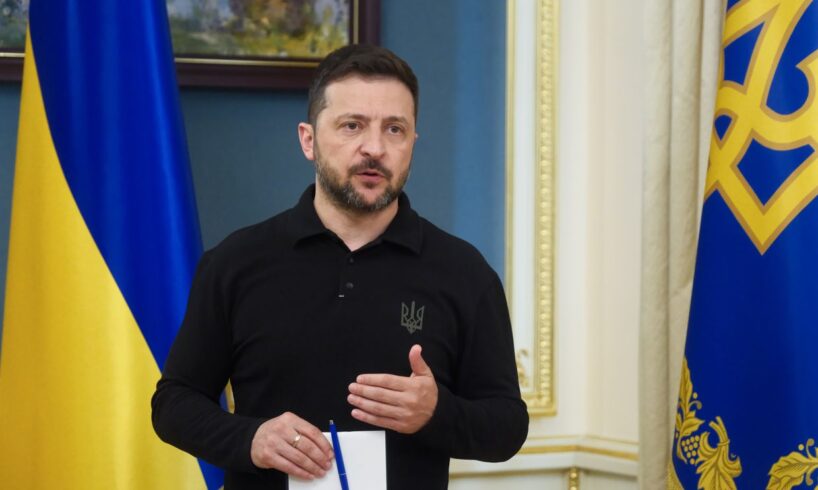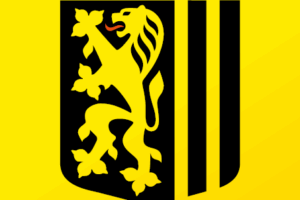
Editor’s note: This is a developing story, and it is being updated.
President Volodymyr Zelensky announced on July 24 that he had approved the text of a new draft law aimed at strengthening the rule of law and the independence of Ukraine’s anti-corruption institutions, promising to submit it to the Verkhovna Rada, Ukraine’s parliament, the same day.
Zelensky claimed the new bill is intended to safeguard the independence of Ukraine’s anti-corruption institutions and protect the legal system from Russian influence or interference. He described the draft as ‘balanced,’ but did not provide further details.
“The most important thing is real tools, no Russian connections, and the independence of NABU and SAPO. The bill will be submitted to the Verkhovna Rada of Ukraine today,” Zelensky said.
Earlier in the day, a cross-party group of 48 lawmakers submitted a bill to the Verkhovna Rada, Ukraine’s parliament, aimed at restoring the independence of key anti-corruption agencies.
“Tomorrow (the bill) can be voted on,” Yaroslav Yurchyshyn, head of the parliamentary committee on freedom of speech, wrote on Facebook. “Your move, Mr. President.”
On July 22, the Ukrainian parliament approved amendments that grant the prosecutor general new powers over cases led by the Specialized Anti-Corruption Prosecutor’s Office (SAPO) and investigations led by the National Anti-Corruption Bureau of Ukraine (NABU).
Zelensky later that day signed the bill into law, effectively destroying the independence of Ukraine’s two key anti-corruption institutions, opposition lawmakers and watchdogs say.
The new law signed by Zelensky allows the prosecutor general to issue binding instructions to NABU, reassign cases outside the agency, and delegate SAPO’s authority to other prosecutors. Critics say the changes dismantle safeguards that protect both bodies from political interference.
Among other new powers, the prosecutor general could also close NABU’s investigations at the legal defense’s request.
On July 23-24, protestors gathered in major cities across the country, including Kyiv, Lviv, Dnipro, and Odesa, with growing calls urging the government to amend current laws.
Ukrainians who spoke to the Kyiv Independent sounded a code red for the country’s democracy, saying the move marked the “point of no return.”
Zelensky claimed that the purpose of the law dismantling Ukraine’s anti-corruption infrastructure was to curtail Russian influence.
However, the law passed and signed on July 22 does not have anything to do with Russian influence. Its clauses deprive anti-corruption agencies of their independence, and there is nothing in the law that targets Russian agents in or outside the agencies.
“The clause that the prosecutor general can take cases away from the National Anti-Corruption Bureau (NABU) is unlikely to have an impact on (Russian agents),” Kateryna Butko, head of the anti-corruption watchdog AutoMaidan, told the Kyiv Independent.
On July 23, Zelensky said Ukraine’s law enforcement and anti-corruption institutions will present a joint action plan within two weeks aimed at strengthening the justice system.
Speaking after a high-level meeting with the heads of Ukraine’s top law enforcement and anti-corruption bodies, Zelensky said the leaders agreed to develop coordinated reforms to restore public trust and ensure accountability.
“We all hear what society is saying,” Zelensky said. “We see what people expect from state institutions — ensured justice and the effective functioning of each institution.
“We discussed the necessary administrative and legislative decisions that would strengthen the work of each institution, resolve existing contradictions, and eliminate threats.”
European Commission President Ursula von der Leyen raised “strong concerns” with Zelensky over the new law, European Commission spokesperson Guillaume Mercier said on July 23.
The Kyiv Independent was targeted by a coordinated distributed denial-of-service (DDoS) attack on July 22-23, coinciding with its coverage of the new law.
‘A fatal mistake’ — Ukrainian soldiers slam Zelensky’s anti-corruption crackdown
Editor’s Note: Some Ukrainian soldiers in this article asked to be identified only by their first name or callsign, citing fears of possible repercussions for speaking to the press about a sensitive topic. Even for Ukrainian soldiers locked in brutal warfare hundreds of kilometers from the capital, President Volodymyr Zelensky’s move to dismantle the country’s anti-corruption infrastructure built over the past decade felt like a blow. Zelensky signed a controversial bill destroying the indepen





